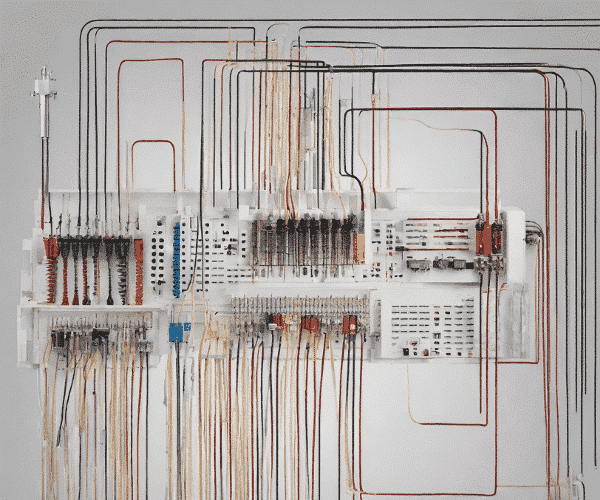
- EV charging stations
- EV charging stations
- Field Service Management
- Field Service Management
- Work Order Management
- Work Order Management
The advantages of field service software for charging infrastructure maintenance teams
Electric vehicle (EV) charging stations are expected to continue to be deployed throughout the United States. According to the World Economic Forum, as of November 2022, 53,000 charging stations have been installed across the country. The state of California has the highest number of charging stations, at a total of 15,182. This makes up roughly 29% of the total share in the U.S.
As the Bipartisan Infrastructure Law outlines, a large amount of funding will go toward building EV charging infrastructure. According to Mckinsey, a whopping $7.5 billion will be allotted to distribute 500,000 chargers across America by 2030.
The need for charging stations is increasing
It’s fair to say most city drivers want to start going electric if they haven’t already. However, as the demand for EVs increases, so will the need for public stations. People will want them to be located in convenient areas, and the pressure to have them functioning properly will be even greater. As more stations are deployed, companies that service and maintain charging infrastructure will need field service software in order to keep up with work order requests.
As a matter of fact, field service management software will not only be the key to ensuring new installations are running on schedule, but also to guaranteeing superior quality of service.
How software makes work order management more efficient
There are various work orders that EV experts need to manage. Installing new charging stations in multiple locations across the United States will need field service software to optimize schedules and quickly dispatch technicians to job sites. There are also maintenance services on older charging infrastructure that will need to be scheduled recurrently.
Managing work orders on paper or on excel spreadsheets isn’t efficient enough, especially with the steady pace at which the EV market is rising. Electronic work orders, an intuitive mobile app for maintenance experts to be able to access essential information, and automation of business processes is required to improve productivity, profitability and of course, service quality.
Benefits for the dispatcher
Field service software like Praxedo allows teams to allocate the right job to the right technician at the right time. The scheduling tool will always take the nature of the task (preventive or curative maintenance) and level of urgency, into account. Upon receiving a service call request, everything is analyzed by the software in an instant.
Praxedo’s SmartScheduler
The SmartScheduler utilizes artificial intelligence to propose the best possible schedule. Praxedo will assign a task to the technician who is both available and has the correct level of training. It will take into account the following essential criteria when optimizing the schedule:
- Distances from point A to point B
- The distribution of the workload
- Technician skills
Having the software do the work and analyze the duration of the job, exact location of all technicians, their expertise, availability of spare parts and current traffic conditions, enables the dispatcher to make more informed decisions more rapidly.
Additionally, with geolocation functionality, the scheduler can monitor field technicians on a map in real time. Status updates such as “Available”, “Working”, and “On the way” are viewed as changes are made throughout the day. And in the event of an emergency, it is possible to modify or move a work order using the drag-and-drop feature, edit the master schedule, and assign a job to another technician with just a few clicks.
Benefits for the technician
From the technician’s perspective, useful information is always available from the mobile application. Schedules are accessed, job history for each charging station is documented, and work order reports are filled onsite.
In some cases, technicians who maintain EV chargers will be forced to be out of range. The charging station may be located underground or in a secluded parking lot. With online/offline functionality however, the technician can service the unit and record information on the mobile app, even without an internet connection. The data will remain secure and sync as soon as a connection is re-established.
Forms are intuitive and configurable, which means fields can be pre-defined to guide technicians to submit the correct information. As a result, their workdays become easier and can input data in a faster time frame while onsite. This also empowers them to be more autonomous on the job. They can manage their own schedules and spend less time doing administrative tasks.
Creating new work orders on the fly
A technician can create a new work order for a second terminal that is out of order at the site they just visited, for example. A report can be quickly selected from a checklist on the tech’s mobile device and generated in PDF format. Once validated at the main office, it is automatically sent to the customer.
Benefits for the service manager at the office
Service managers can receive notifications at every step of a work order, from the opening of a ticket to its closing, making the team as a whole more responsive to customers’ needs.
Tracking business KPIs enable them to pinpoint the areas that need improvement. Configurable dashboards can display the data most relevant to the service manager. Having visibility into the overall performance of field resources and office teams helps in respecting contractual commitments.
If you’d like to learn more about how the need for regular maintenance of EV charging stations is creating new business opportunities for service providers, download our ebook.
Our similar articles.
-
- Productivity
- Field Service Management
- Gestion d’interventions
- Optimization
- Productivité
6 tips to improve service dispatching
September 27, 2018 -
- Field Service Management
- télécoms
- fiber technology
Unleashing the Power of Fiber: A Pathway to the Future
September 21, 2023 -
- Productivity
- Field Service Management
- Gestion d’interventions
- Optimization
- Productivité
How field service management software drives business growth
August 21, 2018


